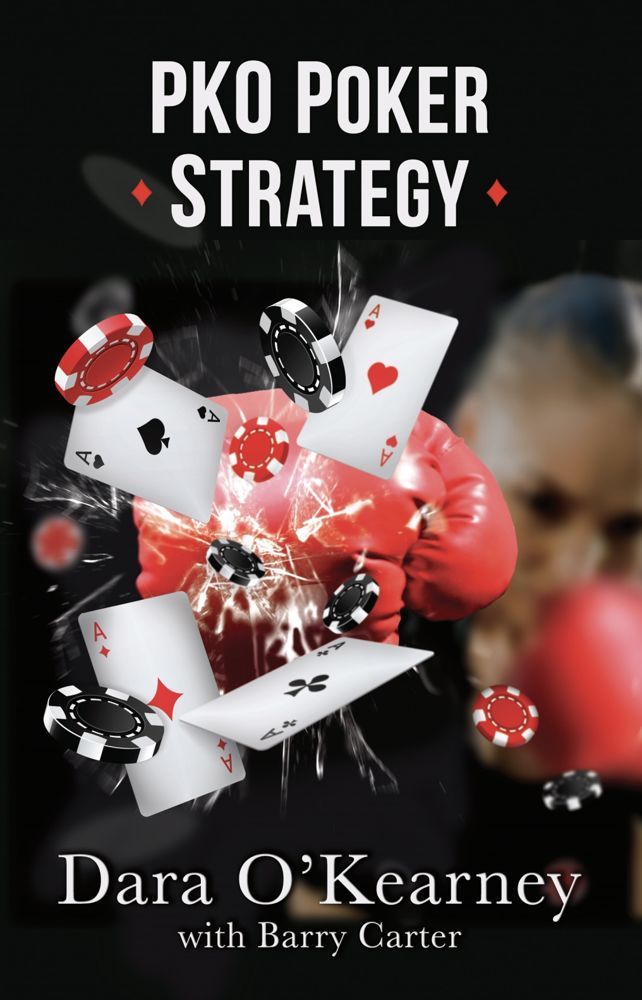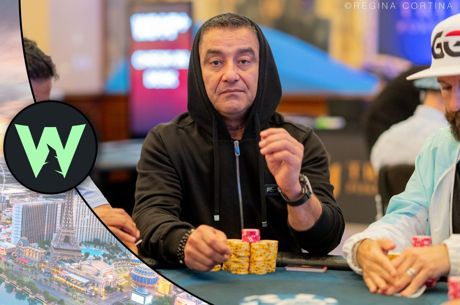When NOT to Gamble for a Bounty in PKOs

Table Of Contents
There is very little written about progressive knockout (PKO) strategy, until now, but most people correctly get the sense that they should widen their range to win bounties. This is especially true when the bounty is big and in some cases represents a bigger prize than what the first mincash is. I have just published a new book on progressive knockout tournaments and, spoiler alert, there are a lot of situations where it is correct to get your money in the middle of the table with 100% of your hands. There are times in PKOs where it is correct to not look at your hand and call.
But, like regular tournaments, there are still reasons to pass profitable spots in PKOs and err on the side of caution. A classic example in a normal MTT might be to pass up a likely coin flip with Ace King when you have an edge over your table. You might have the best of it, but you are more likely to build a stack exploiting your opponents in smaller pots rather than leave it up to the Poker Gods to decide.
In the new strategy book we cite four reasons to fold when you know you would be correct to call to win a bounty in a PKO, three you will be familiar with and one you may not - your stack size, the structure, your perceived edge and the table situation.

Stack Size
If you are short stacked you probably should not be passing any profitable spot, whether you cover or are covered. If, however, you can win a bounty despite being short, this might be the single best shot you have to realise your equity and get back in the game.
If you are deep you should be more conservative with your stack. It may be ‘correct’ to call wider in a particular spot but risking 100 big blinds to win 0.1 big blinds long term, when the downside is elimination, is going to be very stressful.
If you have more than 15 big blinds you can pass on very close spots and wait for better ones to present themselves. If, however, you have between 8-14 big blinds you are not really in a position to pass any close spots. Wait any longer and you will get dwindled down to nothing.
If you have less than seven big blinds it often makes sense to take some minus EV spots, especially if there is a bounty on the line. Because so much equity in PKOs is tied up in winning future bounties, you need to put yourself in a position to cover people.
Read PokerNews' Guide on How to Win More from Bounty Tournaments
Structure
PKOs are quite fast in nature, but if the structure is slower and deeper than average, you can pass up more marginal spots. You will have more time and more room to outplay your opponents.
If it is a hyper turbo structure you cannot pass any close spots, because an average stack goes to a short stack in just a few orbits of inaction in fast formats.
Perceived Edge
The bigger edge you think you have over the field the more conservative you should be. The biggest winners in tournament poker pass the most marginal spots because they don’t want to increase variance for little or no upside in terms of EV.
This is perhaps even more important in PKOs while they remain an ‘unsolved’ format where few people know or study the correct adjustments.
Table Situation
The last three factors you are probably aware of and apply to any MTT format, however the makeup of the table in respect to stack and bounty size is a unique consideration in PKOs. Who covers you, whom you cover and what you can win from each other should significantly inform when to pass marginal spots in PKOs.
It’s not just about what you can win right now, it is about what will happen to our ability to win bounties if we win or lose.
If, for example, we are short stacked and cover nobody, but winning an all-in means we would cover three people at the table, then we should take any profitable spot. Not only will we win the chips when we win but we will gain the opportunity to claim more bounties. If there is a particularly juicy bounty at the table and doubling up means we cover them, it might even be correct to make a minus EV call so we can cover them.
On the flip side if we cover everybody at the table and losing an all-in means we would not, it is much better to pass on a marginal spot because we will no doubt find ourselves in better spots. This is especially true if we are facing the prospect of calling the 2nd biggest stack at the table but they only have their starting bounty.
Of course your table can be broken at any moment, so it is important not to be too rigid with these considerations. Broadly speaking, however, it is important to remember how big a factor future equity winning is in PKOs. When you cover everyone at your table you are playing for a bigger prize pool than they are, so while you take more risks to realise your equity immediately in PKOs, protecting your ability to win bounties is just important too.

Dara O’Kearney is a professional poker player sponsored by Unibet Poker. He is the author of Poker Satellite Strategy and has just released the follow up, PKO Poker Strategy, the first book written about progressive knockout tournaments.









